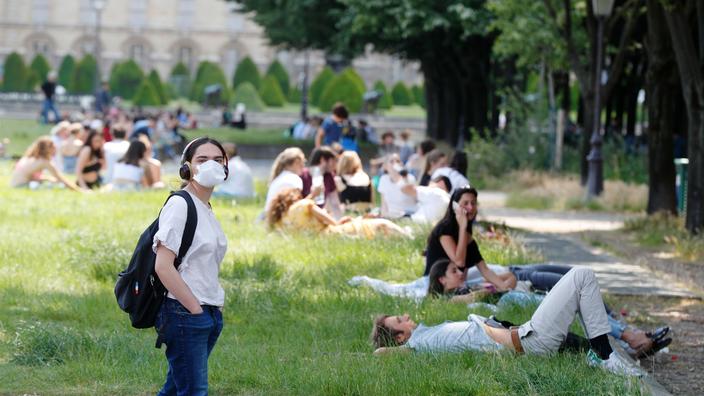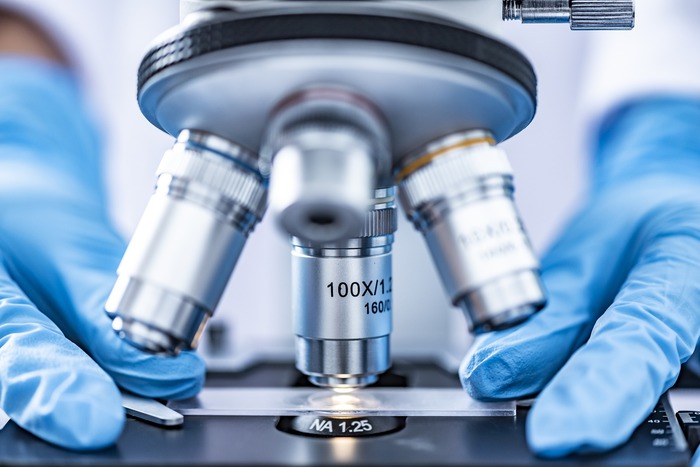Millions of French people are impatiently awaiting the reopening of the terraces on May 19. While the four-step deconfinement was launched last week, the Scientific Council, which was not seized by the executive beforehand, still issued an opinion on the subject: in a 36-page document published Last Thursday, the authors warn the government: even if "
the reopening of social activities is of major importance
", "
the coming weeks remain uncertain and at risk of an epidemic resumption
". "
In the event of a fourth wave, the exhaustion of health personnel will no longer offer the same treatment capacities, in critical care in particular.
», Notably alert the members of the body.
To avoid this scenario, they put forward several solutions: accelerating vaccination, strengthening screening measures, setting up a low incidence plateau rather than a high plateau, as well as the study used waters.
To discover
Covid-19: vaccination as the only remedy
Read also: Is deconfinement faster in France than in other countries?
Accelerating the rate of vaccination
To avoid an epidemic resumption and a fourth wave, one of the main solutions proposed by the Scientific Council is to speed up vaccination. Currently, 17,692,900 people have received a first dose according to Covid Tracker. At the current rate, "
35 million people could be vaccinated by June 30, 2021, which would achieve a significant level of vaccine immunity
", which would still remain "
insufficient for population immunity estimated at 80% at least
" , judge the scientific body. According to
Le Parisien
, to reach this figure, it would be necessary to go from 400,000 to 500,000 vaccinations per day, "
including during the spring weekend periods
".
Read also: Covid-19: the Indian variant is more contagious and seems to be resistant to vaccines, warns the chief scientist of the WHO
But the Council raises some limits, "
because of the gap between the conditions of opening envisaged and the level of vaccination of the population which will be reached
": "
The gap between these two dynamics can expose the population to the diffusion of variants, this which would reduce the benefits of vaccination.
"For the experts, the difficult period is"
between the beginning of May and the end of June
", while a"
race of speed between variants and vaccinations
"continues, in particular in the regions where the virus"
continues to circulate at high level
" .
Favor a low plateau rather than a high plateau
Since the start of the crisis, we often hear of “
peak
” and “
plateau
”.
If the first represents the maximum point reached by the curve, the other signifies stagnation: in this precise case, the number of new contaminations does not increase or decrease, compared to the previous days.
For the scientific body, "
the option of a low plateau is clearly preferable to that of a high plateau
".
Read also: Covid-19: the incidence rate drops below 400 infections for all departments
During the deconfinement announcement, Emmanuel Macron put in place emergency health brakes, which are based in particular on the incidence rate: if this rate exceeds 400 new infections per 100,000 inhabitants in a department, that This could see these reopening measures postponed. For scientists,
"the fundamental question is that of the level at which we wish to see the incidence of cases stabilize, in a context where elimination is not envisaged in the short term".
They therefore estimate that a low plateau, ie an incidence of less than 50 or 100 maximum, "
would make it possible to achieve a sufficient level of vaccination coverage (35 million first-time vaccinated on June 30, 2021) to calmly consider the relaxation of restrictive measures, and to approach the summer period in the best conditions
”.
Reinforcement of screening
To strengthen the detection of the Covid-19 virus, the body puts forward three means: the wider dissemination of self-tests, the strengthening of saliva tests at airports and the use of experiments such as dogs that detect the virus.
Arrived this week in high schools, the self-tests are now accessible to everyone and everywhere in France.
As part of a Test, Tracer, Isolate policy, it would be necessary for example to precede "
the weekend of the Ascension of a large campaign of screening by saliva tests
", recommends the council, provided that their use "
is explained
”.
Read also: Covid-19: antigenic self-tests on sale in pharmacies meet with mixed success
At the same time, the board recommends promoting checks with antagonistic or RT-Lamp tests, in particular at international airports, on departure and arrival in addition to RT-PCR tests 48 or 72 hours before departure.
He would also like the finalization of real-life experiments for the early detection of Covid-19, in particular with the help of dogs who are trained to identify the scents specific to the presence of the virus.
Wastewater analysis
Since the start of the Covid-19 epidemic, researchers have been studying wastewater to determine the level of circulation of the virus.
Of the 22,000 treatment plants spread across the country, there are now 150 where samples are collected and analyzed for the presence of viruses.
For the Scientific Council, this wastewater turns out to be "
an excellent sentinel for an epidemic recovery
" when the level of circulation is low.
And this analysis has already proved its worth: after the first containment in May 2020, signs of an epidemic resumption were observed in the wastewater before any other indicator.
Read also: Covid-19: what the analysis of wastewater shows
The Scientific Council reminds fellow citizens to "
be aware of the issues raised by the reopening
"
:
"
Their individual adherence to protective measures during this period of reopening is fundamental to move towards a more peaceful start to the summer
". “
The reduction in collective measures linked to the reopening now places greater responsibility on everyone. The time has not yet come to collectively lower our guard and respect for barrier gestures remains essential. Access to care for the most vulnerable remains a priority,
”the experts conclude.



/cloudfront-eu-central-1.images.arcpublishing.com/prisa/BKILBZWDTBB53BQIZTALBOYMGQ.jpg)





